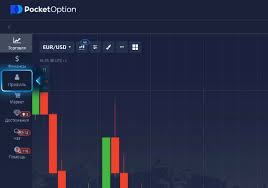Pocket Option AML Policy: Safeguarding Against Financial Crimes
In the fast-evolving landscape of online trading, adherence to regulatory standards is more critical than ever. The Pocket Option AML Policy Patakaran sa AML at KYC Pocket Option stands as a testament to the commitment of Pocket Option in fighting against money laundering and ensuring accountability. In this article, we will delve deeply into the significance of Anti-Money Laundering (AML) policies, highlighting the components of Pocket Option’s approach, and elucidating what this means for traders and the broader financial ecosystem.
Understanding AML Policies
Anti-Money Laundering (AML) policies are essential frameworks designed to prevent, detect, and report money laundering activities. Money laundering is a systematic process through which individuals or groups make illicitly obtained funds appear legitimate. By implementing robust AML policies, financial institutions and trading platforms can mitigate risks and promote transparency, trust, and integrity in their operations.
Importance of AML Policies in Online Trading
The online trading environment presents unique challenges and opportunities. Due to the anonymity and ease of transactions, traders and platforms face heightened risks of financial crimes. AML policies play an indispensable role in safeguarding the interests of both traders and the trading institution itself.
By establishing a solid AML framework, Pocket Option serves multiple purposes:
- Protecting the integrity of the financial market: By deterring malicious activities, AML policies safeguard the reputation and functionality of the trading platform.
- Ensuring compliance with regulatory requirements: Financial regulators worldwide impose stringent rules designed to combat money laundering, and adherence to these standards is essential for operational legality.
- Fostering customer trust: Traders are more likely to engage with platforms that prioritize security and compliance, knowing that their investments are being protected against financial crimes.
Pocket Option’s AML Policy Overview
At Pocket Option, the AML policy is comprehensive, ensuring that all transactions are monitored and analyzed to identify suspicious activities. Key components of the AML policy include:
1. Customer Due Diligence (CDD)
Pocket Option conducts thorough customer due diligence as part of its AML measures. This includes collecting and verifying information about customers during the registration process. The aim is to authenticate the identities of traders, thereby reducing the likelihood of fraudulent accounts being created for malicious activities. Customers are required to provide identification documents and other necessary information to verify their identity.
2. Monitoring Transactions
Continuous monitoring of transactions is integral to Pocket Option’s AML efforts. The platform utilizes automatic systems to track trading patterns and spot any irregularities that may indicate money laundering activities. By investing in sophisticated technology, Pocket Option is able to enhance its ability to detect suspicious transactions promptly.
3. Reporting Suspicious Activities

In instances where suspicious activities are detected, Pocket Option has clear protocols in place for reporting these findings to the appropriate authorities. This not only aligns with global AML regulations but also reinforces the platform’s commitment to transparency and legality in its operations.
4. Ongoing Staff Training and Awareness
Staff education plays a pivotal role in successful AML implementation. Pocket Option invests in regular training sessions for its employees, equipping them with the knowledge and skills needed to identify potential risks and adhere to compliance guidelines. This fosters a culture of awareness and responsibility throughout the organization.
KYC: Know Your Customer
AML policies go hand in hand with Know Your Customer (KYC) regulations. KYC is a crucial aspect of Pocket Option’s commitment to maintaining a secure trading environment. The KYC process requires traders to provide personal identification and financial information, which is then verified by the platform to ensure legitimacy.
The Role of KYC in AML
KYC procedures are instrumental in enhancing AML efforts. By knowing their customers, Pocket Option can better assess risk levels and implement appropriate safeguards. This proactive approach helps in differentiating legitimate traders from individuals engaged in illicit activities.
Challenges in Implementing AML Policies
While AML policies are essential, their implementation can come with challenges. Online trading platforms like Pocket Option face several hurdles, including:
- Technological Limitations: Despite advancements in technology, cybercriminals continually evolve, finding new methods to bypass security measures.
- Regulatory Divergence: As financial regulations vary from one country to another, Pocket Option must navigate a complex web of compliance requirements.
- Balancing Security with User Experience: Striking a balance between stringent security measures and a smooth user experience can be challenging; heavy verification processes might deter legitimate traders.
The Future of AML Policies in Online Trading
As the online trading sector continues to grow, the importance of effective AML policies will only increase. Enhanced technologies, such as artificial intelligence and machine learning, are poised to transform how platforms like Pocket Option detect and combat money laundering. Implementing these advanced systems can lead to more efficient monitoring, faster identification of anomalies, and, ultimately, a safer trading environment.
Conclusion
Pocket Option’s AML Policy exemplifies the platform’s dedication to ensuring a secure and compliant trading experience. By adhering to regulatory guidelines, implementing stringent customer verification processes, and leveraging advanced technology, Pocket Option remains steadfast in the fight against money laundering. As a trader, understanding these policies not only empowers you to engage in a safer trading environment but also builds confidence in the integrity of the platform. Remember, a compliant trading platform is not just a legal obligation — it’s a commitment to maintaining trust in the financial ecosystem.

Leave A Comment